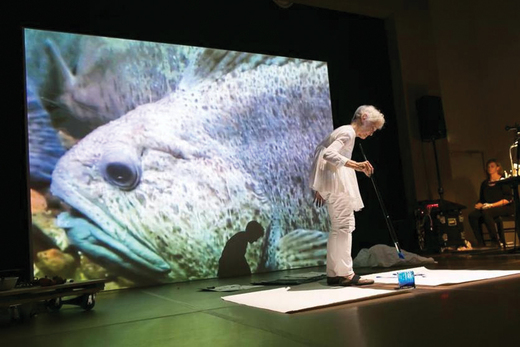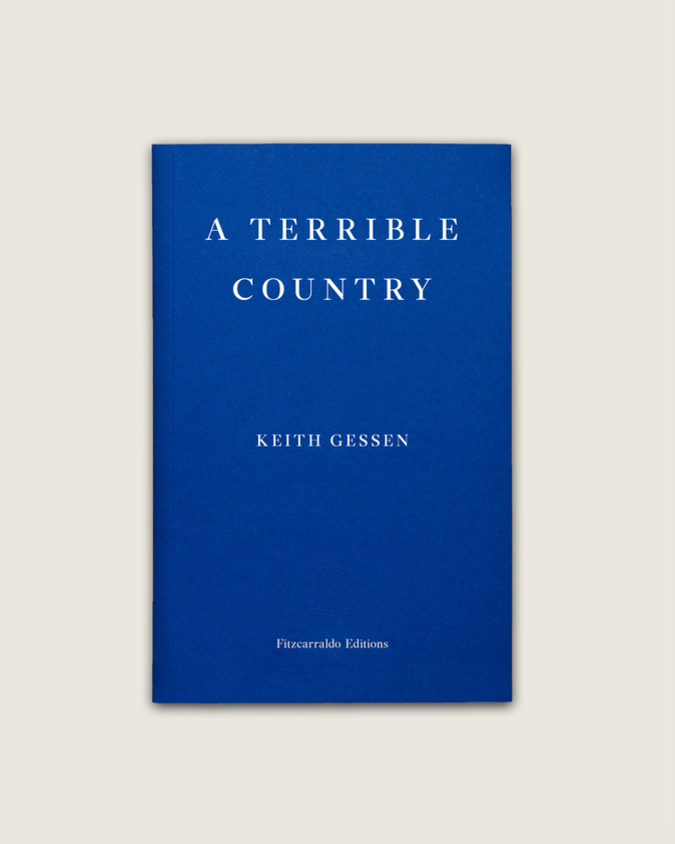
Brian Dillon reviews Joan Jonas at Tate Modern for the LRB:
Joan Jonas bought her first video camera, a Sony Portapak, also known as the Video Rover, on a trip to Japan in 1970. In the history of video art, there is no more celebrated piece of kit. It’s said that on its release in 1965 Nam June Paik was the first artist to start using this newly consumer-priced set-up. Andy Warhol’s videos of the same year (including a dazed portrait of Edie Sedgwick) were made with a large borrowed Philips camera, but he too began using the smaller and simpler Sony in 1970. William Eggleston bought two, stuck fancier lenses on them, and documented the Memphis demi-monde for his film Stranded in Canton. Jonas, who at this point had worked mostly in performance and made one short film, realised that the combination of camera, monitor and recorder would allow her to see results straight away in her studio. Already preoccupied by mirrors and mirroring – Borges was an influence – she turned the Portapak on herself and executed what Rosalind Krauss would later call a ‘weightless fall through the suspended space of narcissism’.
‘Narcissism’ is not exactly a judgment, more a description of process. In her earliest videos, which one comes across quickly in Tate Modern’s ambitious but sometimes frustrating survey (until 5 August), Jonas appears as Organic Honey: a feathered 1930s-style starlet, wearing a close-fitting mask from an erotica store on Manhattan’s 42nd Street. In blurry black and white, Organic Honey stares into a broken mirror, then back at the camera. She distorts her features by pressing her face to a large glass jar full of water, into which she tosses coins as if it were a lucky fountain. The enigmatic action is periodically accompanied by loud electronic buzzing. There are more mirrors: small and round, large and triangular, close-up and getting smashed with a hammer. Organic Honey’s Visual Telepathy (1972) is a study of pictorial space, the performing body and Jonas’s relationship with certain eloquent objects, whose outlines she draws frenziedly: old dolls and fans inherited from her grandmother.
Though she is commonly referred to as a performance artist, both the content and form of Jonas’s videos from the 1970s make a good case for seeing her as a major figure in the medium. Organic Honey’s Vertical Roll (1973) is shown in the same room at Tate Modern. This time, Organic Honey examines her naked body with a handheld mirror, performs a belly dance, and jumps up and down in time with a regular upwards slippage of the video image. (Jonas tweaked the vertical hold on a monitor to make it break into something resembling the frames of a film, and then trained a second camera on this glitchy video feed.) Elsewhere in the exhibition, tucked a little shamefully into a corner, is the sparse installation Glass Puzzle II (1974/2000). Projected in black and white, Jonas and the artist Lois Lane pose (to a reggae soundtrack) in attitudes based on E.J. Bellocq’s famous photographs of prostitutes in Storyville, New Orleans, in the 1910s. There’s a child’s desk in the foreground of this video, and a later copy of it in the gallery. Nearby, a small colour monitor shows the two women standing beneath a horizontal pole that swings back and forth: a reminder that Jonas is as interested in minimally sculptural forms as she is in any sort of external reference point.
Glass Puzzle II operates very well as a single-channel video: a conceptually smart and formally arresting work in itself, and the record of an unrehearsed performance at Jonas’s SoHo loft. But like much of her art it has been reconfigured as a dispersed set of objects in the gallery, including props and images, which may function without the artist’s presence, and so provoke the question of where and how each of these categories – video, performance and installation – abuts or bleeds into the others. In 1976 Jonas had an exhibition at the Institute of Contemporary Art in Philadelphia, where she began calling her installations ‘stage sets’ – these could incorporate performances, or stand in for them. The Juniper Tree, from the same year, was originally conceived as a performance for children, and is based on the Grimm tale of the same title, which the poet Susan Howe, an old friend, had recommended. (A young boy is beheaded by his wicked stepmother, served up to his father, reincarnated as an avenging bird.) The ‘stage set’ version at Tate Modern, constructed in 1994, has a recording of Jonas reading the story, projected slides of various performances of the work and an assemblage of paintings, props and costumes. It feels dense and lurid and generous, even in the absence of Jonas and her collaborators.
(…)




